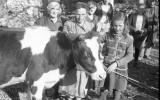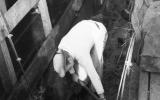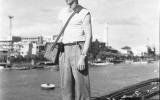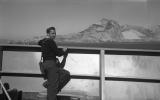CPS Unit Number 152-01
Camp: 152
Unit ID: 1
Operating agency: BSC
Opened: 1946
Closed: 1946
Workers
Total number of workers who worked in this camp: 308
-
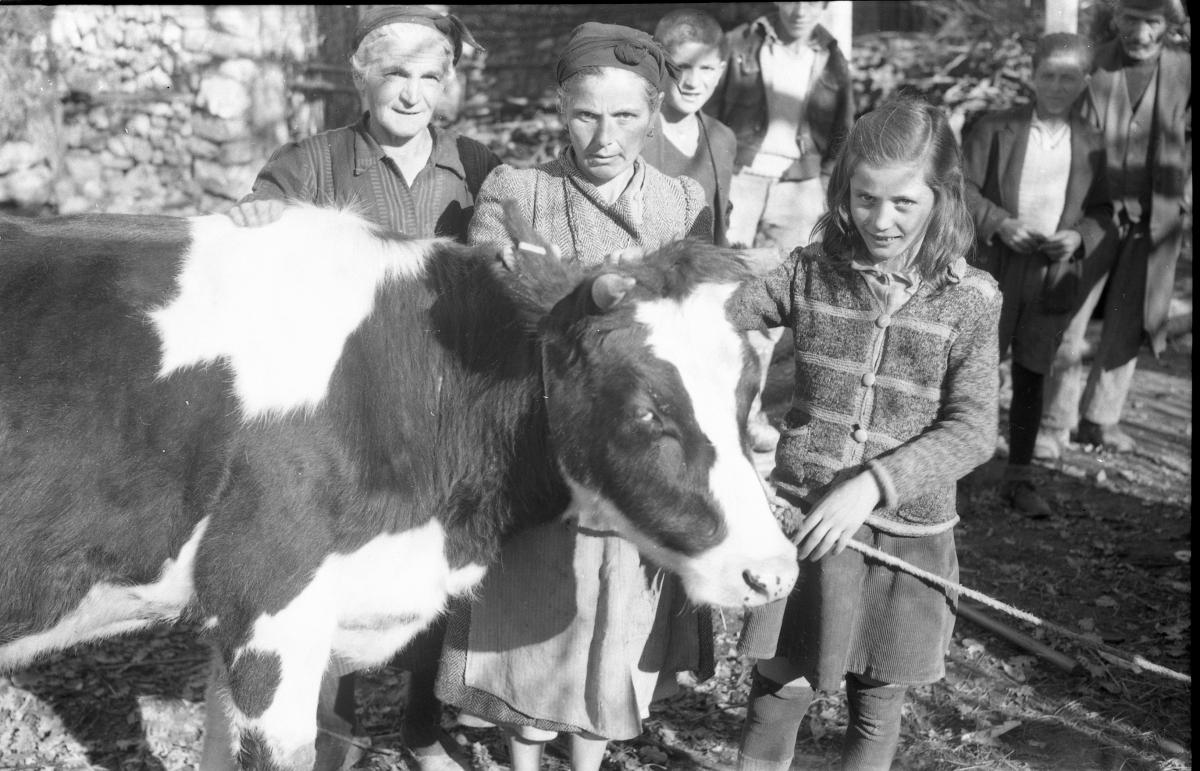 CPS Camp No. 152A family in Kavalla, Greece, receiving a heifer from the sea-going cowboys.Brethren Historical Library and Archives
CPS Camp No. 152A family in Kavalla, Greece, receiving a heifer from the sea-going cowboys.Brethren Historical Library and Archives -
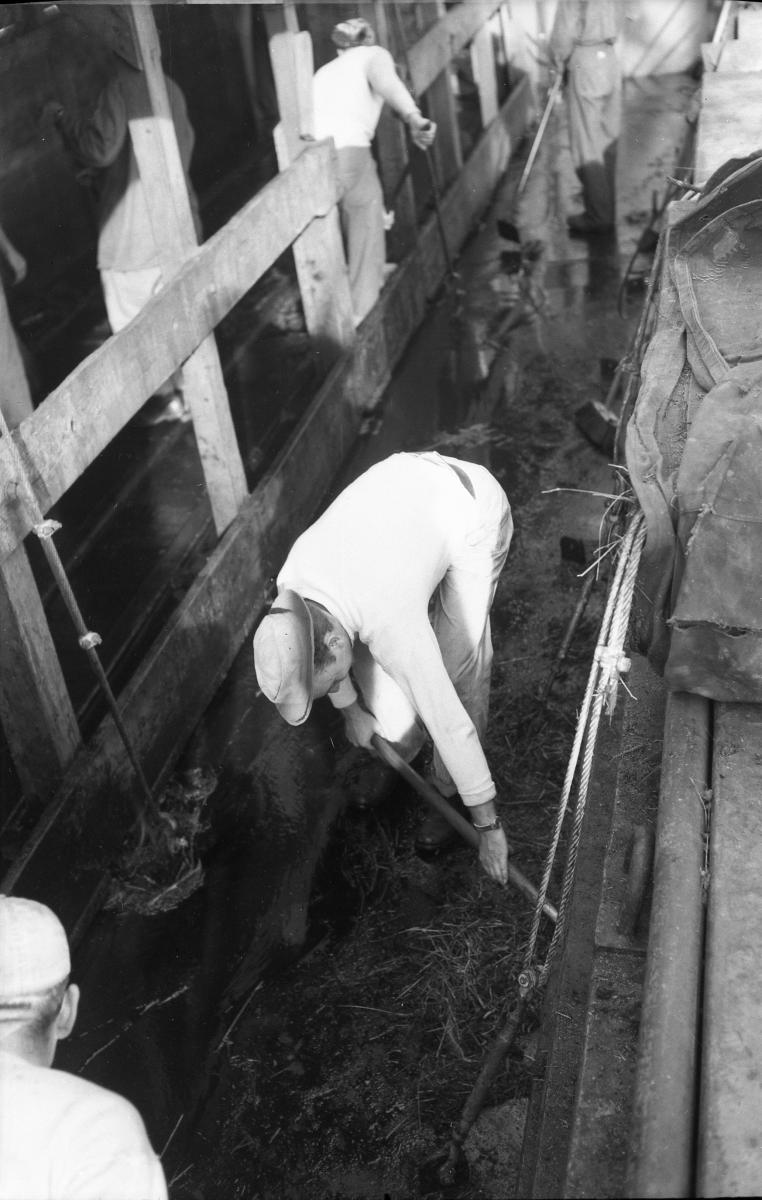 CPS Camp No. 152John Trostle, a CPS worker and sea-going cowboy, cleaning the stalls.Brethren Historical Library and Archives
CPS Camp No. 152John Trostle, a CPS worker and sea-going cowboy, cleaning the stalls.Brethren Historical Library and Archives -
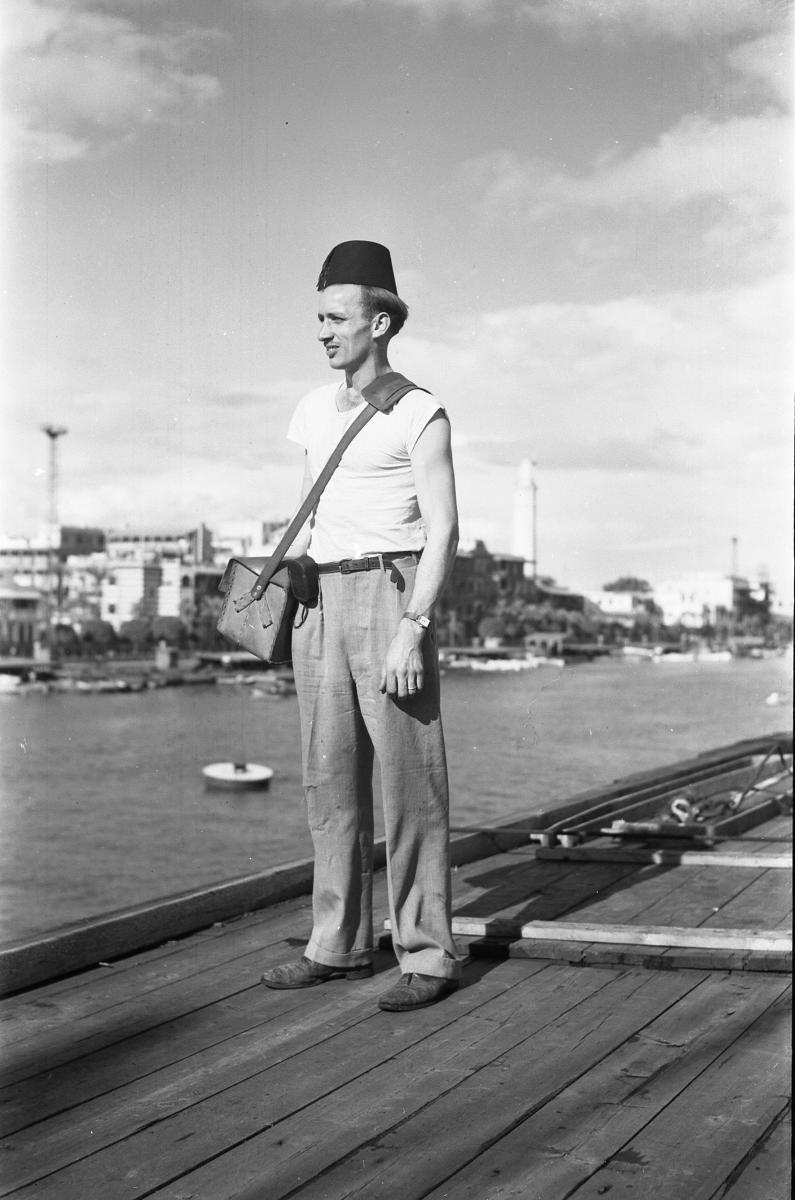 CPS Camp No. 152Charles Lord, a CPS worker and sea-going cowboy, at Port Said with fez hat standing on top of cattle shed.Brethren Historical Library and Archives
CPS Camp No. 152Charles Lord, a CPS worker and sea-going cowboy, at Port Said with fez hat standing on top of cattle shed.Brethren Historical Library and Archives -
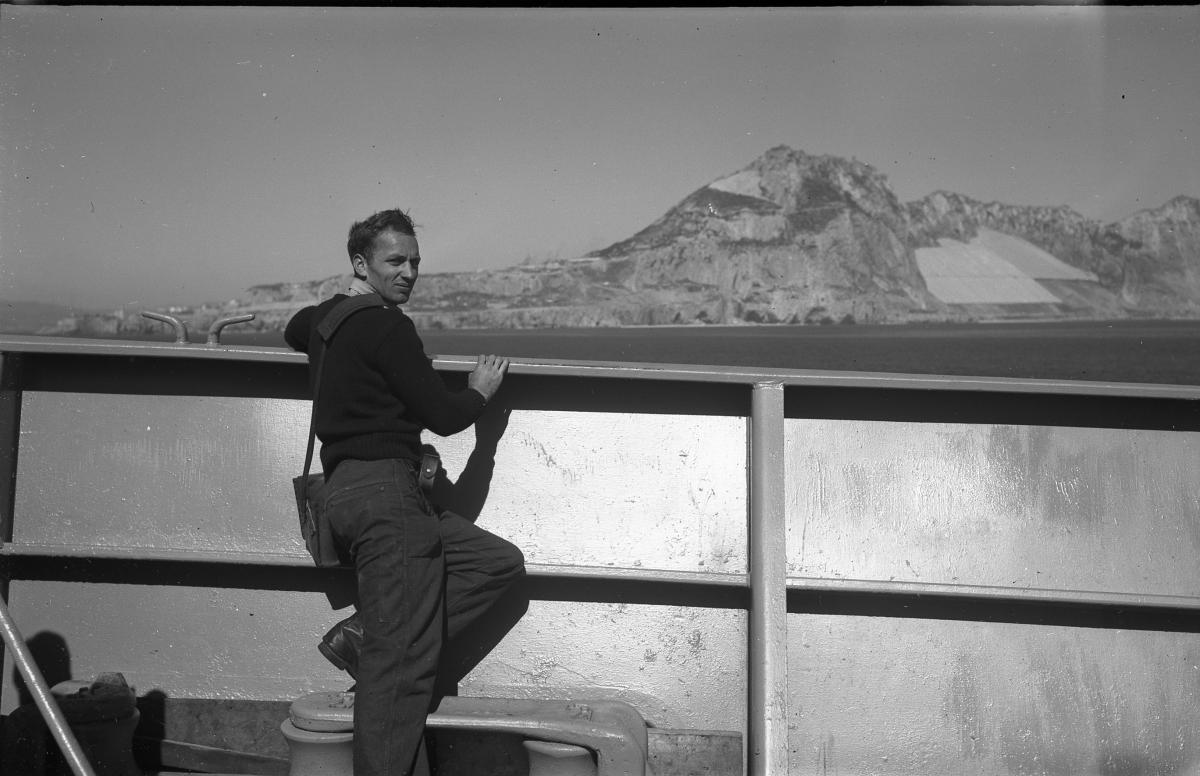 CPS Camp No. 152Charles Lord, a CPS worker and sea-going cowboy, looking out at Gibraltar.Brethren Historical Library and Archives
CPS Camp No. 152Charles Lord, a CPS worker and sea-going cowboy, looking out at Gibraltar.Brethren Historical Library and Archives
CPS Other, No. [152], the Seagoing Cowboys special project, never an official Civilian Public Service program, utilized CPS men as attendants for livestock sent from the United States to war torn countries. This CPS Reserve Corps, created through an alliance between the Brethren Service Committee and the United Nations Relief and Rehabilitation Agency (UNRRA), helped deliver cattle and horses to war-torn countries. During 1946, three hundred and sixty-six CPS men served on ships that sailed from Newport News or Norfolk, Virginia to Europe. The men were discharged from CPS after their last voyage. Since this project was not a formal part of the Selective Service System, it is designated with a separate number, [152].
Director: Benjamin Bushong, assisted by assignees Charles Franz, Charles Brashares, Raymond Hartman, and others.
In all, three hundred and sixty-six CPS men served on ships in 1946 that sailed from Newport News or Norfolk, Virginia to Europe. Of the group, one hundred and fifty-four men reported Mennonite denominational affiliation when entering CPS, sixty-two reported Brethren affiliation, forty-six reported Friends affiliation, thirty-two Methodist, ten Amish and the rest reported affiliations with other denominations or peace organizations. Their ages ranged from 19-33. (Yoder, p. 1)
The men tended to the livestock, feeding the animals at 6:00 am. Following their breakfast, the men watered the livestock, and daily cleaned and scraped the floors and stalls, washing the aisles with salt water. Following the noon meal, the men brought hay and oats up from the hold. Each man tended from twenty-five to thirty horses. They assisted longshoremen if any heifer, horse or cow was difficult to move in or out of a cage when loading and unloading the livestock.
Each man received $150 per trip, but was required to pay transportation home at the time of discharge.
“Men will be required to obtain seaman’s papers from the Coast Guard and must pass the physical examination of the War Shipping Administration.” (NSBRO Camp Director’s Bulletin No. 170 [unknown month and day] 1946, in Yoder, p. 3)
Between trips, the men stayed at the New Windsor Relief Center and later at Newport News, Virginia. While at New Windsor, men joined in the community activities and programs already in place at the center.
Before going to sea, men packed bags with not only clothing, books and stationery, but also packages of food for destitute individuals for whom they had addresses in foreign ports.
During the time at sea, the men were under the legal authority of the ship captain; when on shore, they were under the control of UNRRA, although the authority had been delegated to the Relief Section of the Brethren Service Committee.
Time spent in foreign ports varied from a few days to as long as two weeks. One “cowboy”, Arthur Lenz, wrote of the devastation and destruction. “One begins to feel the psychology of want, despair, indecision, confusion . . . . We are hitting at the ‘grass roots’ when we bring in livestock and farm implements and fertilizer. . . . We can bring them food, but if we go farther and provide tools so that they can start producing themselves, it’s an improvement”. (March 5, 1946 in Eisan p. 331)
For more information on Seagoing Cowboys project, see Leslie Eisan, Pathways of Peace: A History of the Civilian Public Service Program Administered by the Brethren Service Committee. Elgin, IL: Brethren Publishing House, 1948 pp. 324-332.
See also Church of the Brethren Historical Library and Archives http://www.brethren.org/site/PageServer?pagename=office_general_secretary_brethren_historical_library_archives.
See also Melvin Gingerich, Service for Peace: A History of Mennonite Civilian Public Service. Akron, PA: Mennonite Central Committee printed by Herald Press, Scottdale, PA 1949, pp. 187- 189.
For more information on the Heifer Project, see J. Kenneth Kreider, A Cup of Cold Water: The Story of Brethren Service. Elgin, IL: Brethren Press, 2001.
See also http://www.seagoingcowboys.com/ by Peggy Reiff Miller.
For more information on the origins of the program, the formation of the CPS Reserve Corps, a list of ships and selected correspondence compiled by Anne M. Yoder, Archivist at the Swarthmore College Peace Collection, click on the link below. http://www.swarthmore.edu/Library/peace/conscientiousobjection/CPSResources/SeagoingCowboys.html.
